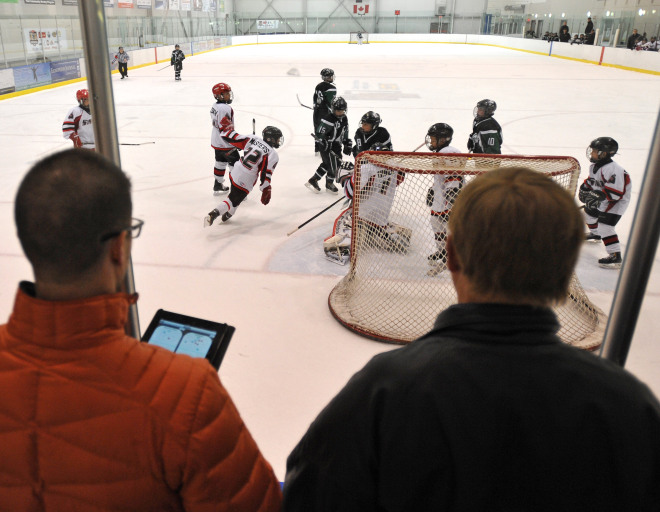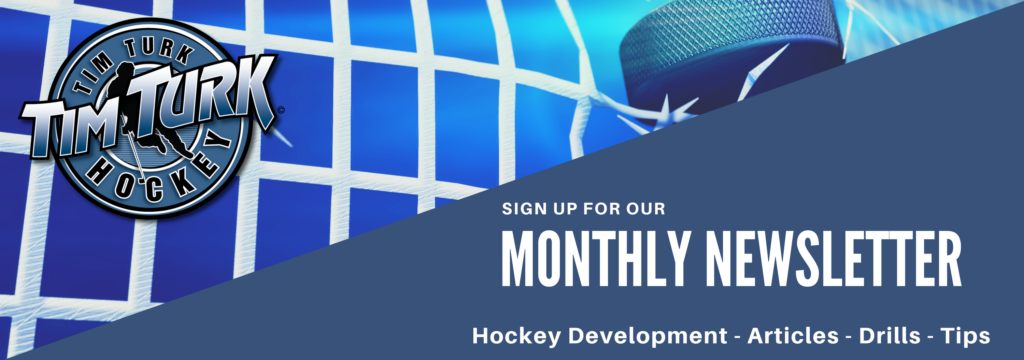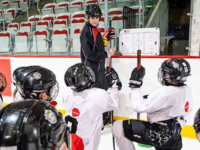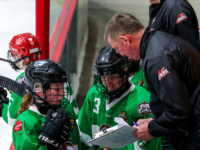Any hockey player knows that tryouts are an important part of the season. They only have a short period of time to demonstrate their skills, and they must also beat out many other capable players at the same time. Tryouts are also important for coaches as well.
Coaches need to do a lot of planning (speeches, drills, activities, and scrimmages) over the course of many days. Then, they must stay extremely focused while tryouts are running. Keeping close watch of every player involved is difficult enough, but they also need to be analyzing each one for their strengths and weaknesses. Once the tryouts are over, the coaches struggle over a decision that defines the entire season they have ahead of them: choosing their team. In addition, coaches often deal with anxious and upset parents and players.
Yes, tryouts are important, but tough for any hockey coach. If you’re a coach who’s nearing the time for tryouts, here are 5 tips to help you make them smooth and successful.
-
Plan Everything
The most important step to making sure your tryouts run smoothly is to plan the entire thing beforehand. Make sure you know exactly what to say, what activities and drills to run, what groups players will be divided into, and which of the coaching staff will take charge of what. It’s also helpful to have a rough idea of how long everything will take and to make a schedule for each day you want to run tryouts.
If you have everything planned and scheduled, it will drastically cut back on confusion and wasted time. This will allow you to breathe a little easier when things are running, and you’ll be able to focus on assessing your team hopefuls rather than scrambling to run your activities.
-
Enlist Help
Your fellow coaching staff and volunteers can help during the tryout process. You can have the players subdivided into small groups and have someone to take care of each group and run the activities for you. A popular option is to hire a third party skills coach, that can run the necessary drills required, that way you can concentrate on observing and assessing while discussing with your coaches. This will reduce your stress and allow you the focus you need.
-
Include the Goalies
Goalies are a totally different breed of hockey player, and that is especially true during the tryout process. While majority of the players at your tryouts won’t be net-bound, there will still be a few kids there competing for a goaltending position.
Try your best to make drills and activities that include goalies as much as possible. That way, they won’t be bored or sitting out for any extended period. Plus, it will give you the opportunity to analyze all the players at the same time. Having the kids play scrimmages is another great way to include the goalies and to let you assess everyone at once.
-
Focus on the Players
Tryouts are all about the players. They feel that every move they make and every shot they take is being watched and will count towards your final decision, so do your best to make that a reality. Try to avoid things that will distract you from watching the players on the ice, or having lengthy conversations with your staff, or any parents.
Yes, parents will want to talk to you about their kids, even while the tryouts are going on. They feel that they can increase their kid’s chances of making the team if they vouch for their skills. However, the real indicator should be how they perform on the ice during the tryouts, so do diligence to focus on that. Try your best to limit any conversations that parents want to have about their children by letting them know that you need to watch their performance as the tryouts are happening. This will save the parents from worrying that they need to help their child make your team by vouching for them, and you’ll be able to put all your attention to the kids on the ice.
-
Offer Feedback
One of things parents will be looking for while tryouts are happening is feedback on their child’s performance. While you should aim not to give the feedback during the actual tryouts, you should certainly give constructive criticism to any player or parent who wants it. Every player cares about how they perform on the ice, and if they didn’t end up making the team, most of them will want to know why. The information you give to the kids and their parents can be incredibly helpful, because they can learn from it and improve so they can make the team they want to in the years to come.
For coaches, hockey tryouts are a ton of work. They’re a tiring period full of stress and difficult decisions, which can really make for a gruelling process. And yes, some players will be let down; everyone will come out of the tryout period with some battle scars. But if you put the effort into your tryouts by following the tips above, you can end up with a stellar team that will likely be more successful during season, and in the end, you’ll thank yourself for putting in the hard work.






